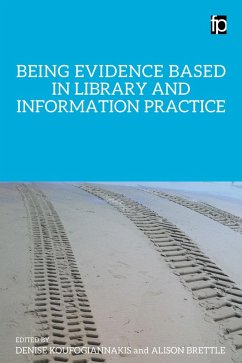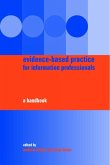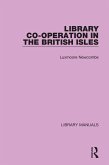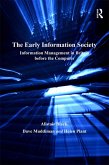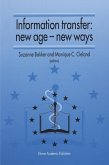This book builds a research-grounded, theoretical foundation for evidence based library and information practice and illustrates how librarians can incorporate the principles to make more informed decisions in the workplace.
The book takes an open and encompassing approach to exploring evidence based library and information practice (EBLIP) and the ways it can improve the practice of librarianship. Bringing together recent theory, research, and case studies, the book provides librarians with a new reference point for how they can use and create evidence within their practice, in order to better meet the needs of their communities.
Being Evidence Based in Library and Information Practice is divided into two parts; in the first part the editors explore the background to EBLIP and put forward a new model for its application in the workplace which encompasses 5 elements: Articulate, Assemble, Assess, Agree, Adapt.
In the second part, contributors from academic, public, health, school and special libraries from around the world provide an overview of EBLIP developments in their sector and offer examples of successful implementation.
Being Evidence Based in Library and Information Practice will be essential reading for library and information professionals from all sectors who want to make more informed decisions and better meet the needs of their users. The book will also be of interest to students of library and information studies and researchers.
The book takes an open and encompassing approach to exploring evidence based library and information practice (EBLIP) and the ways it can improve the practice of librarianship. Bringing together recent theory, research, and case studies, the book provides librarians with a new reference point for how they can use and create evidence within their practice, in order to better meet the needs of their communities.
Being Evidence Based in Library and Information Practice is divided into two parts; in the first part the editors explore the background to EBLIP and put forward a new model for its application in the workplace which encompasses 5 elements: Articulate, Assemble, Assess, Agree, Adapt.
In the second part, contributors from academic, public, health, school and special libraries from around the world provide an overview of EBLIP developments in their sector and offer examples of successful implementation.
Being Evidence Based in Library and Information Practice will be essential reading for library and information professionals from all sectors who want to make more informed decisions and better meet the needs of their users. The book will also be of interest to students of library and information studies and researchers.
Dieser Download kann aus rechtlichen Gründen nur mit Rechnungsadresse in A, D ausgeliefert werden.

